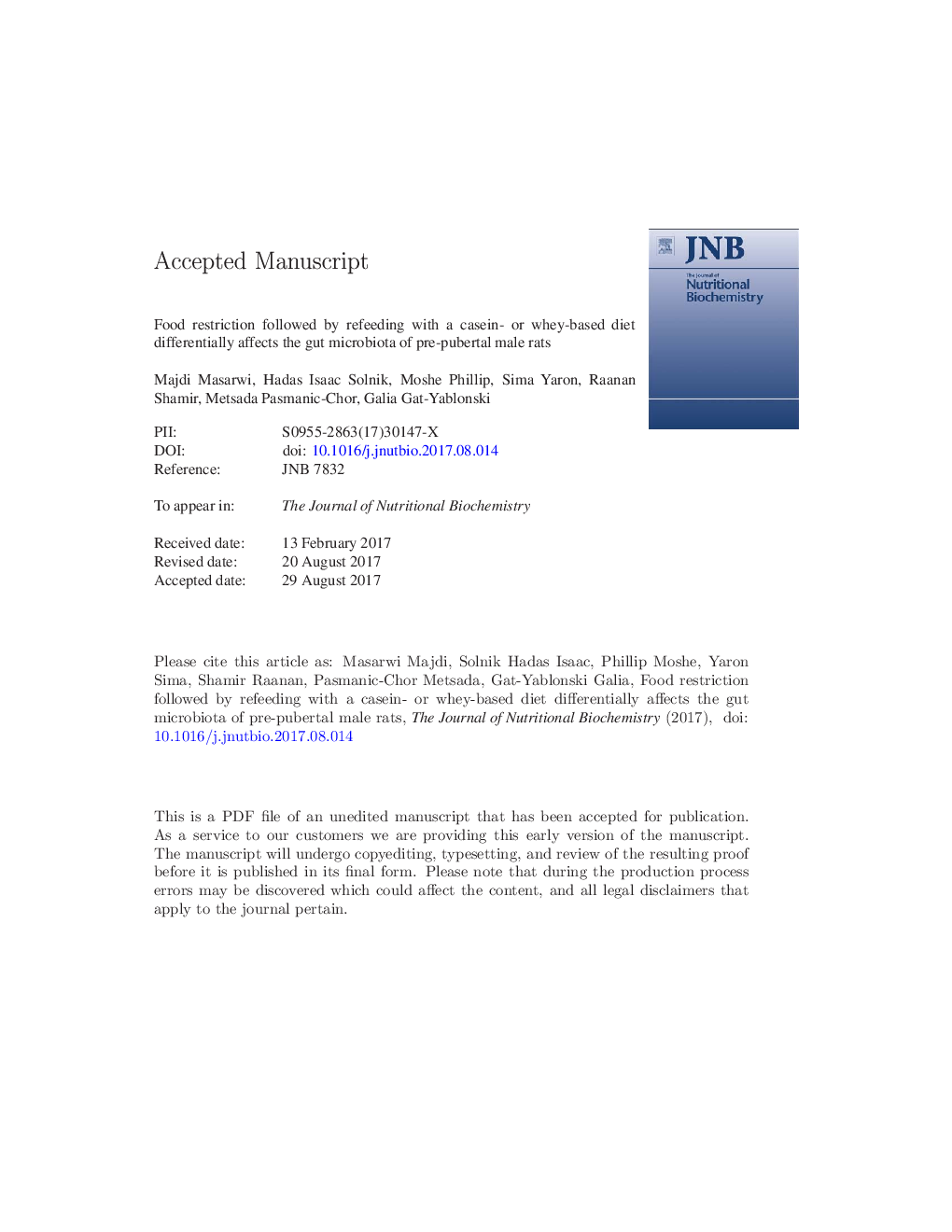| Article ID | Journal | Published Year | Pages | File Type |
|---|---|---|---|---|
| 8336454 | The Journal of Nutritional Biochemistry | 2018 | 46 Pages |
Abstract
Researchers are gaining an increasing understanding of host-gut microbiota interactions, but studies of the role of gut microbiota in linear growth are scarce. The aim of this study was to investigate the effect of food restriction and refeeding with different diets on gut microbiota composition in fast-growing rats. Young male Sprague-Dawley rats were fed regular rat chow ad libitum (control group) or subjected to 40% food restriction for 36 days followed by continued restriction or ad libitum refeeding for 24 days. Three different diets were used for refeeding: regular vegetarian protein chow or chow in which the sole source of protein was casein or whey. In the control group, the composition of the microbiota remained stable. Food restriction for 60 days led to a significant change in the gut microbiota at the phylum level, with a reduction in the abundance of Firmicutes and an increase in Bacteroidetes and Proteobacteria. Rats refed with the vegetarian protein diet had a different microbiota composition than rats refed the casein- or whey-based diet. Similarities in the bacterial population were found between rats refed vegetarian protein or a whey-based diet and control rats, and between rats refed a casein-based diet and rats on continued restriction. There was a significant strong correlation between the gut microbiota and growth parameters: humerus length, epiphyseal growth plate height, and levels of insulin-like growth factor 1 and leptin. In conclusion, the type of protein in the diet significantly affects the gut microbiota and, thereby, may affect animal's health.
Keywords
EGPAVDIGF-1RESSCFACASPCoABMCHDLFDRhigh-density lipoproteinOTUWheyOsteocalcininsulin-like growth factor-1Principal Coordinates Analysisfold changeShort chain fatty acidEpiphyseal growth plateCoefficient of VariationLow-density lipoproteinLDLBone mineral contentfood restrictionfalse discovery rateGut microbiotaOperational taxonomic unitsCaseinCatch up growth
Related Topics
Life Sciences
Biochemistry, Genetics and Molecular Biology
Biochemistry
Authors
Majdi Masarwi, Hadas Isaac Solnik, Moshe Phillip, Sima Yaron, Raanan Shamir, Metsada Pasmanic-Chor, Galia Gat-Yablonski,
